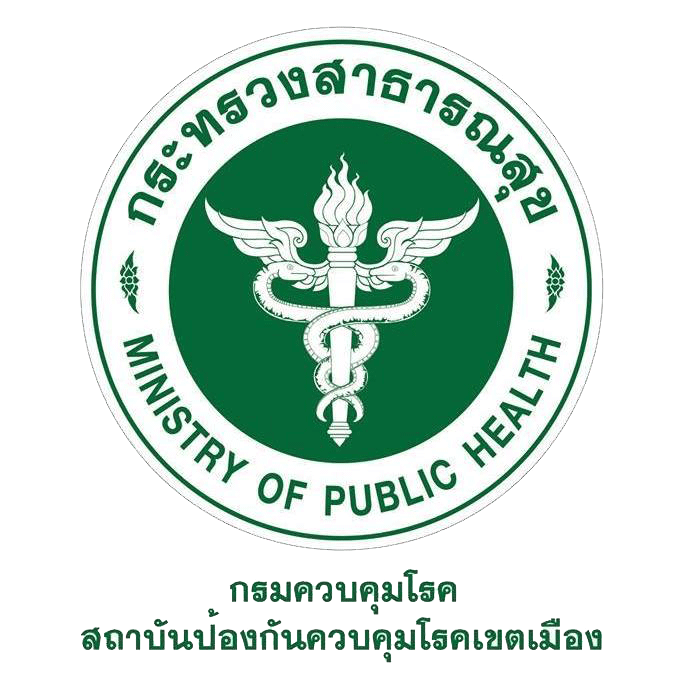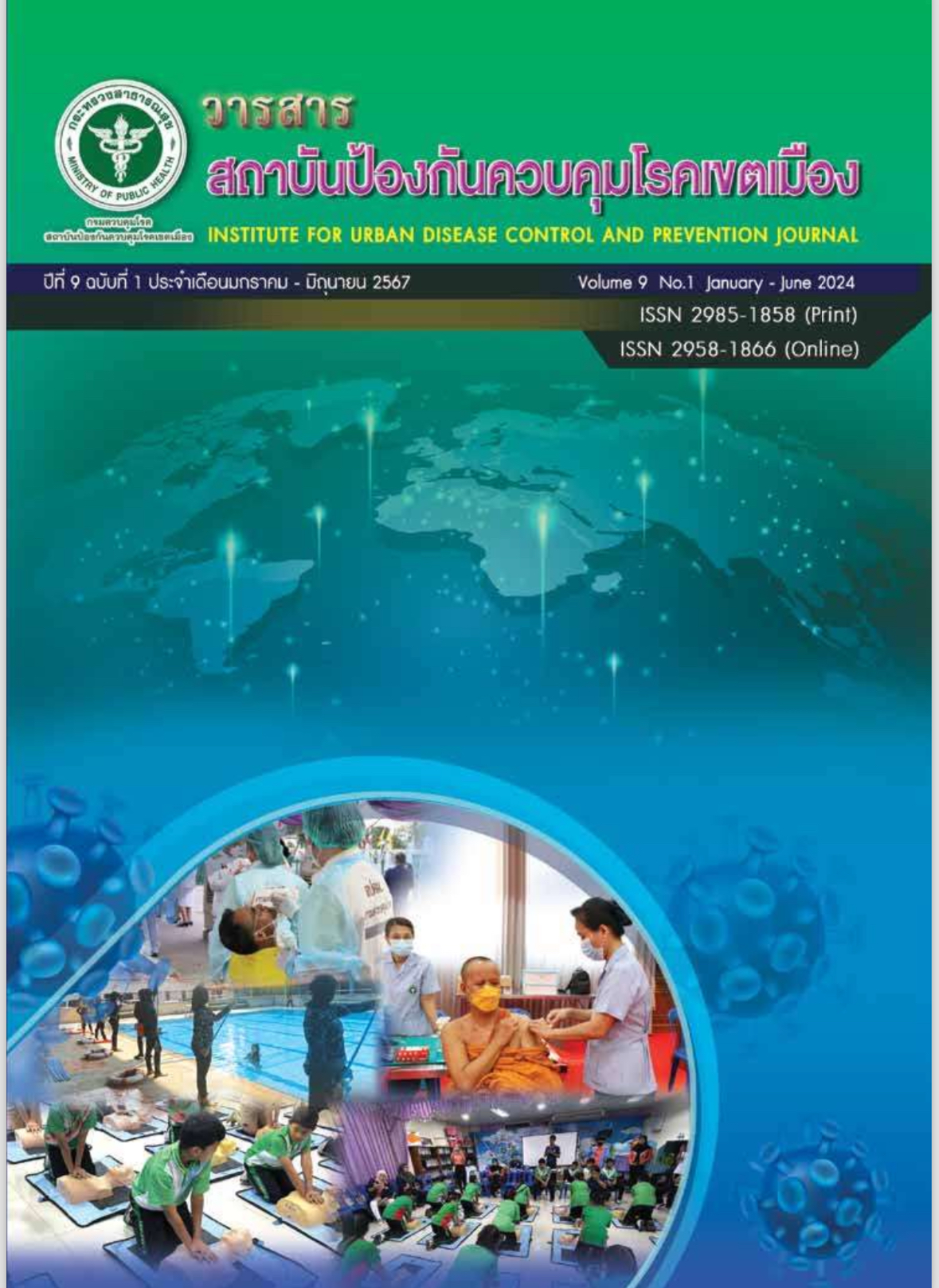วัคซีนเอชพีวีในแผนงานสร้างเสริมภูมิคุ้มกันโรคของประเทศไทย
Main Article Content
บทคัดย่อ
บทคัดย่อ
วัคซีนเอชพีวีที่รัฐนำมาให้บริการในแผนงานสร้างเสริมภูมิคุ้มกันโรค เพื่อป้องกันการติดเชื้อเอชพีวีและลดโรคมะเร็งปากมดลูกที่มีสาเหตุจากเชื้อเอชพีวีสายพันธุ์ในวัคซีน ได้ผ่านกระบวนการพิจารณาอย่างรอบด้านและตัดสินใจในระดับนโยบายเพื่อนำวัคซีนใหม่มาใช้ ด้วยกลไกที่เกี่ยวข้องที่กระทรวงสาธารณสุขได้ปรับปรุงและเชื่อมโยงการทำงานของแต่ละกลไกให้สอดประสานไปในทิศทางเดียวกัน และขั้นตอนหนึ่งที่มีความสำคัญที่ใช้เป็นหลักฐานเชิงประจักษ์
ที่แสดงให้เห็นว่าสมควรนำวัคซีนเอชพีวีมาใช้ในแผนงานสร้างเสริมภูมิคุ้มกันโรค คือ การจัดทำโครงการนำร่อง
การให้บริการวัคซีนเอชพีวี ซึ่งดำเนินการในพื้นที่ของจังหวัดพระนครศรีอยุธยา มีกลุ่มเป้าหมายเป็นนักเรียนหญิงชั้นประถมศึกษาปีที่ 5 กำหนดการฉีดวัคซีนเอชพีวี คือ 2 เข็ม ระยะห่างระหว่างเข็ม 6 เดือน ผลการนำร่องการให้บริการวัคซีนเอชพีวีในปีแรก (ปี พ.ศ.2557) พบว่า วัคซีนเอชพีวีได้รับการยอมรับจากเจ้าหน้าที่ที่รับผิดชอบงานอนามัยโรงเรียน/สร้างเสริมภูมิคุ้มกันโรค ครูประจำชั้น/ครูอนามัย และผู้ปกครอง ร้อยละ 97.8 95.7 และ 91.2 ตามลำดับ ความครอบคลุมการได้รับวัคซีนครบถ้วน 2 เข็ม เท่ากับ ร้อยละ 87.4 อาการไม่พึงประสงค์ภายหลังได้รับวัคซีนที่พบบ่อย ได้แก่ ปวดบริเวณที่ฉีด เป็นไข้ บวมแดงบริเวณที่ฉีด และปวดศีรษะ ไม่พบอาการไม่พึงประสงค์ที่รุนแรง ในเวลาต่อมา เมื่อวัคซีนเอชพีวีได้รับการพิจารณาให้ขยายการให้บริการทั่วประเทศและบรรจุในแผนงานสร้างเสริมภูมิคุ้มกันโรค ปี พ.ศ. 2560 พบว่า ความครอบคลุมการได้รับวัคซีนครบ 2 เข็ม ในการให้บริการปีแรกเท่ากับร้อยละ 96.9 และได้รับการยอมรับจากผู้ปกครอง ร้อยละ 98.5 แม้ว่าวัคซีนเอชพีวีจะได้รับการยอมรับจากผู้ปกครองเป็นอย่างดี แต่การให้ความรู้เกี่ยวกับโรคมะเร็งปากมดลูก การป้องกัน วัคซีนเอชพีวี และการเกิดอาการไม่พึงประสงค์ภายหลังได้รับวัคซีนแก่ประชาชน ยังคงเป็นมาตรการสำคัญที่ต้องดำเนินการ เพื่อสร้างความเข้าใจที่ถูกต้องต่อมาตรการป้องกัน และทัศนคติที่ดีต่อแผนงาน
Article Details

อนุญาตภายใต้เงื่อนไข Creative Commons Attribution-NonCommercial-NoDerivatives 4.0 International License.
บทความที่พิมพ์ในวารสารสถาบันป้องกันควบคุมโรคเขตเมือง ถือว่าเป็นผลงานวิชาการ งานวิจัยและวิเคราะห์ ตลอดจนเป็นความเห็นส่วนตัวของผู้เขียนเอง ไม่ใช่ความเห็นของสถาบันป้องกันควบคุมโรคเขตเมือง หรือคณะบรรณาธิการแต่ประการใด ผู้เขียนจำต้องรับผิดชอบต่อบทความของตน
เอกสารอ้างอิง
Rojanamatin J, Ukranun W, Supaattagorn P, Chiawiriyabunya I, Wongsena M, Chaiwerawattana P, et al, editors. Cancer in Thailand Vol.X, 2016-2018. Bangkok: Medical Record and Databased Cancer Unit, National Cancer Institute; 2021.
สำนักงานปลัดกระทรวงสาธารณสุข, กองยุทธศาสตร์และแผนงาน. สถิติสาธารณสุข พ.ศ. 2564. นนทบุรี: กองยุทธศาสตร์และแผนงาน; 2564.
Okunade KS. Human papillomavirus and cervical cancer. J Obstet Gynaecol. 2020 Jul;40(5):602-8.
World Health Organization [Internet]. Geneva: World Health Organization; c2024. Human papillomavirus and cancer; 2024 [updated 2024 Mar 5; cited 2024 Mar 9]; [about 1 screen]. Available from: https://www.who.int/news-room/fact-sheets/detail/human-papilloma-virus-and-cancer
ปิยวัฒน์ เลาวหุตานนท์, อาคม ชัยวีระวัฒนะ, วีรวุฒิ อิ่มสำราญ. แนวทางการตรวจคัดกรอง วินิจฉัยและรักษาโรคมะเร็งปากมดลูก. กรุงเทพฯ: สถาบันมะเร็งแห่งชาติ; 2566.
สำนักงานหลักประกันสุขภาพแห่งชาติ. ประกาศสำนักงานหลักประกันสุขภาพแห่งชาติ เรื่อง การจ่ายค่าใช้จ่ายเพื่อบริการสาธารณสุข กรณีบริการสร้างเสริมสุขภาพและป้องกันโรคสำหรับบริการพื้นฐาน จ่ายตามรายการบริการ พ.ศ. 2566. ราชกิจจานุเบกษา เล่มที่ 140, ตอนพิเศษ 117 ง (ลงวันที่ 22 พฤษภาคม 2566).
World Health Organization. Human papillomavirus vaccines: WHO position paper (2022 update). Weekly epidemiological record. 2022; 50(97):645-72.
World Health Organization. New vaccine post-introduction evaluation (PIE) tool. Geneva: WHO; 2010.
World Health Organization. Revising global indicative wastage rates: a WHO initiative for better planning and forecasting of vaccine supply needs. Geneva: WHO; 2019.
กระทรวงสาธารณสุข, สถาบันวัคซีนแห่งชาติ(องค์การมหาชน). หลักสูตรเชิงปฏิบัติการสำหรับเจ้าหน้าที่สร้างเสริมภูมิคุ้มกันโรค ปี 2561. พิมพ์ครั้งที่ 3. กรุงเทพฯ: อมรินทร์พริ้นติ้ง แอนด์ พับลิชชิ่ง จำกัด (มหาชน); 2561.
World Health Organization. Meeting of the Global Advisory Committee on Vaccine Safety, 7–8 June 2017. Weekly epidemiological record. 2017; 28(92):393-404.


